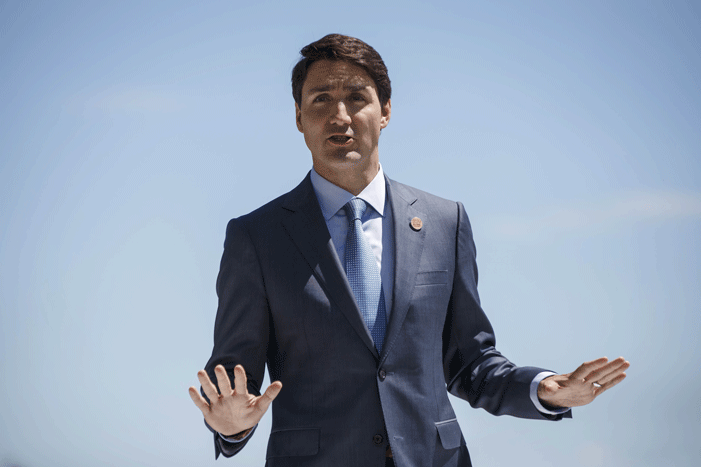Five big reasons Albertans have an issue with Ottawa

Readers in Eastern Canada may be forgiven for reckoning that Alberta cowboys are trying to jackhammer our province out of the Canadian bedrock.
We must look past the hysterical hand-flapping from Ottawa to understand why Alberta is defending itself.
Let’s inspect five big beefs Albertans have with the feds: carbon taxes, blocked pipelines, equalization, tanker bans and the gun grab.
The carbon tax is currently $50 per tonne and the Trudeau government is going to triple it the next eight years.
The carbon tax adds 11 cents per litre to gasoline and 13 cents to diesel. It costs about $13 extra to fill a pickup truck because of the carbon tax, money that could instead buy two jugs of milk.
Our home heating bills are also soaring thanks to the federal carbon tax. It typically adds between $40 to $100 per month to the cost of winter heating.
It gets worse.
Prime Minister Justin Trudeau’s government is jacking up the carbon tax to $65 per tonne next year, and he’s creating a second carbon tax this summer.
Adding insult to injury, the feds have cut a special deal with Quebec. While every other province will be forced to pay the mandatory minimum carbon tax of 14 cents per litre of gasoline next year, Quebec just needs to keep its tax above 4.8 cents per litre.
Carbon taxes on fuel makes everything that depends on fuel more expensive. That includes trucking groceries. It’s partly why a record number of Alberta families are relying on food banks. Even with Trudeau’s carbon tax rebates, Albertans are about $670 poorer this year because of the carbon tax. And it will only get worse in the years to come.
Trudeau’s No More Pipelines law, Bill C-69, and his West Coast Tanker Ban, Bill C-48, are two more hits. Alberta can’t get its oil and gas out to places that need it for home heating like the UK, or to India, that’s looking to buy natural gas.
If the Trudeau government is so concerned about global emissions, Canada could tackle the big end of the arithmetic problem and sell its natural gas to India so folks there can stop burning wood scraps and animal dung.
But it’s not just the problem of lost jobs and royalties that happens when pipelines are blocked. The CTF calculated that Canada’s lack of pipelines could cost the federal government $12.8 billion in lost revenue. Each province could build a new hospital with that money.
Can you imagine if a prime minister blocked exports of auto parts from Ontario or aluminum from Quebec the way Trudeau blocks Alberta’s natural resources? It’s almost impossible to picture.
Transfer payments and equalization are two more bones to pick.
Albertans recently voted overwhelming in a province-wide referendum in favour of changing equalization and getting a better deal with Ottawa. Equalization costs each Albertan about $650, or about $2,600 per family, so it should be easy to understand why they want a new deal.
Equalization isn’t the only federal program that has redistributed money away from Alberta. Since the 1960s, Albertans have paid $600 billion more to Ottawa than received back in federal transfers or program spending.
Finally, firearms. Alberta is home to about 328,700 gun owners. Ranchers eliminate coyotes with rifles. Hunters bag a deer and put it in the family deep freeze. Target shooters compete at marksmanship meets. Firearms are a huge part of the culture here.
With Bill C-21 the Trudeau government is seizing thousands of rifles and shotguns from their owners. Police say it won’t make Canadians safer. This gun grab is likely the largest gun confiscation in Canadian history, and it could add another $1 billion in costs.
The Trudeau government has been mistreating Alberta, and these abuses cannot continue if Alberta’s relationship with the rest of Canada is going to thrive.
Alberta is speaking. It’s time for Ottawa to listen.
Kris Sims is the Alberta Director for the Canadian Taxpayers Federation